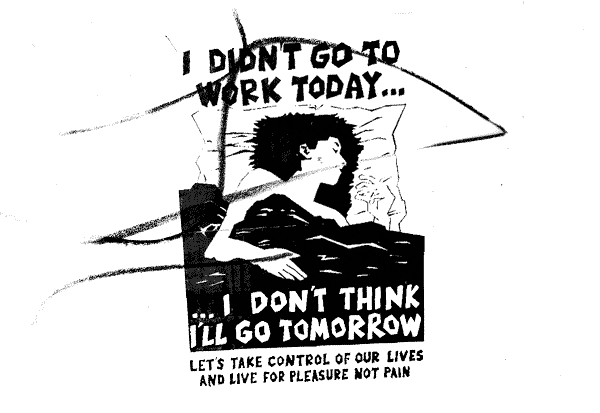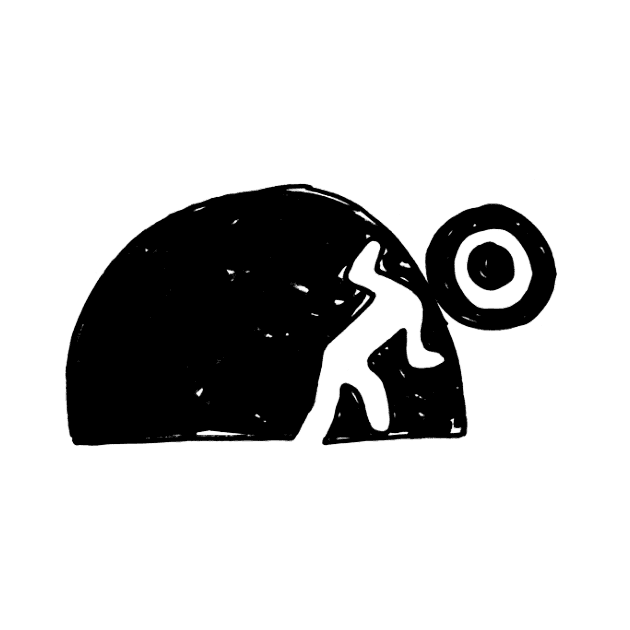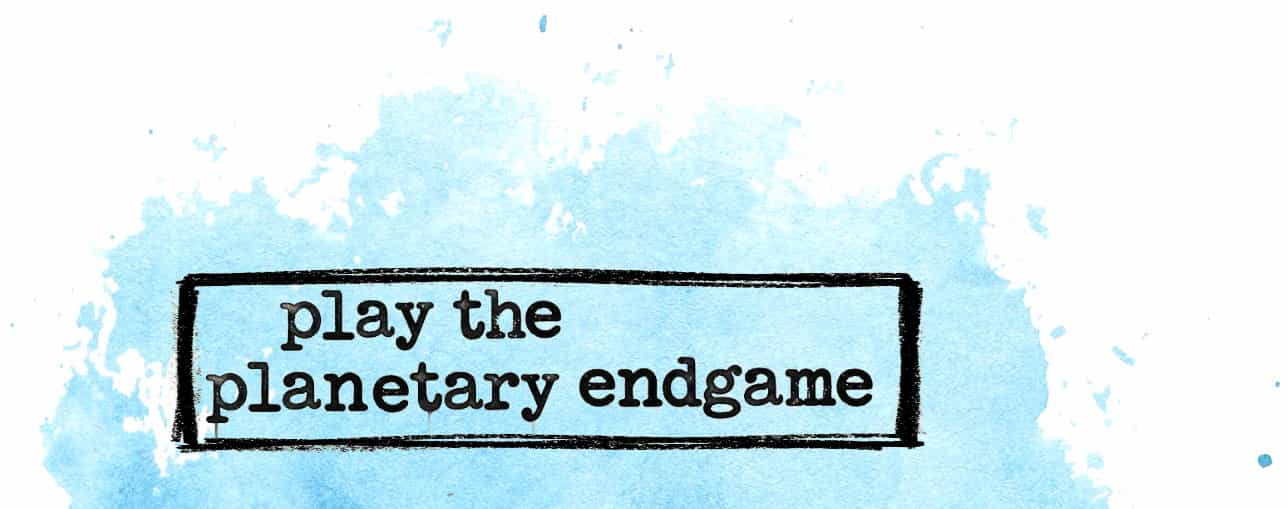Opting Out: Antiwork and the Great Resignation

Americans quit their jobs this summer at rate never seen before. Gen Z led the charge. The children of Occupy Wall Street — footsoldiers of the Third Force — went full Johnny Paycheck on their crappy minimum-wage employment.
“This is a fight response,” a career coach told The New York Times. When people are triggered, they go reptilian: fight or flight. And flight’s not an option when you’re cornered. Across a scorched-earth economic landscape employees looked their bosses in the eye, and their bosses blinked. Because the power dynamic was reversed and everyone knew it. For once it was the workers who had the leverage.
“We are short-staffed. Please be patient with the staff that did show up. Nobody wants to work anymore.”
That sign on a McDonald’s drive-through this spring was revolutionary tinder. That last sentence in particular — a noisy blurb by some manager pissed off by the coddled youth and their lack of stick-to-itiveness — did exactly the opposite of what was intended. Instead of sympathy for the management class, it inspired a wave of parodies. And then the former US labor secretary Robert Reich called BS with a definitive series of tweets: “Let’s get one thing straight: there is no labor shortage. There is a shortage of employers willing to pay their workers a living wage. Instead of: no one wants to work anymore. Try: no one wants to be exploited anymore.”
The way people were quitting — trumpeting their departures on social media — should have been a clue that this wasn’t about laziness. It’s the opposite of lazy to quit out loud. That is fury talking. It’s a statement that this is not about me. Something much bigger is happening, something historic — a convergence of at least five human-made crises — and I’ll be damned if I’m going to miss the chance to be part of it.
But here’s the curious and kind of wonderful thing about this fight: the lack of blood on the streets. This is a new kind of resistance, more Gandhi than Robespierre. No blades, no bullhorns, no threats. It’s more like a martial art: you absorb the violence of your aggressor without having to be violent yourself. In fact, this may be the apex of the art: simply climbing into bed and pulling the covers over your head.
The Mandarin word for it is “tang ping” — literally “lying flat.” Young Chinese, beaten down by an authoritarian system and yearning to live a more relaxed life, spread themselves against the earth like a measuring tape, becoming “the metric of all things,” as one protester put it in a social media post that was quickly deleted by the state. Clearly, the pushback against degrading overwork is not just a Western thing. Rather, it’s a sign, as one tang ping enthusiast put it, of a “global unraveling.”
*
“I opt out.” Those are powerful words. Consider the mighty, status-quo-toppling impact of this passive gesture if everybody did it. The new activists have found magic in inverting the old mantra of the capitalist hustle.
Don’t just do something: stand there.
To do nothing, even for a short while, is an active rebuke of the creation of capitalist value. You’ve re-routed your attention from the distraction economy (which always ends up with you buying something, usually online) into something dreamier and more exploratory, which might ultimately compel you, when you do get up from your prone position, to lace up your shoes and walk right past the car in the driveway and continue on, just walking, beyond where the sidewalk ends.
And this has been the one upside of the otherwise grim blight on the world that is this pandemic: the disruption gave everyone time to reflect on their workaday routine. And a lot of people came to the same conclusion: Why the fuck should I take the prime of my life and simply hand it over? I could get breakthrough Covid and die. I could get Long Covid and be forever compromised. These could be my last good days, and I will never get them back.
So you stand down and take a breath. And survey the landscape. And you realize that what you’ve been doing so doggedly, committing to so loyally, giving the best of your energies to, is what David Graeber called a “bullshit job.” In the eyes of the corporate vassal who signs your cheques, you are fungible, interchangeable — meaning you have no particular value, and nothing you’re doing has any lasting value, except to shareholders (of which you are not one). And that’s when you raise the white flag. Because a totally predictable sequence of events happens when you strip people of their dignity: they get depressed. And then they get mad.
And then they get even.
To be crystal clear here, this is not about not wanting to work. We humans are working dogs. We prefer to work than not to work, studies show. Graeber liked to point out that in prisons, they use withdrawing your work privileges as punishment. “Given a choice between sitting around playing cards and pressing shorts, prisoners will take the latter.” But prison work isn’t exactly what most people are thrilled to do voluntarily. And, increasingly, that’s the kind of work most of the world’s workers are faced with.
The economist David Spencer, in his new book Making Light Work, rejects the idea that only a small minority get the privilege of doing high-quality work, while the rest of us press shorts. There are ways to reconfigure working life starting with a shorter work week — that can restore some of the creativity and dignity and meaning to the work most of us do.
And the average employee comes to understand: You do not own me, day and night. I give my service to you, on my terms.
So celebrate this moment of opportunity born of crisis. Maybe these are the first growing-pain heaves along the road to what a new definition of a successful life actually looks like.
Join the Third Force Collective to access our revolutionary briefings.
This isn't a paywall. You can close it if you just want to read the article below it. But our aim is to win the planetary endgame — we want to catalyze a moment of truth, a stunning reversal of perspective from which corpo-consumerist forces never fully recover. For that we need you.






